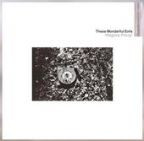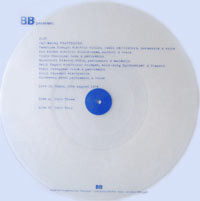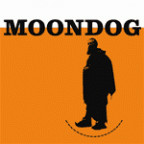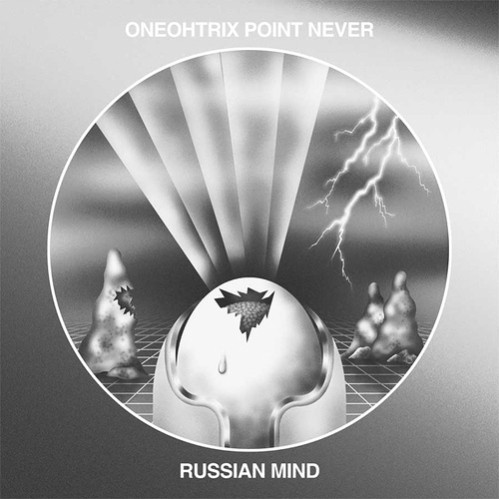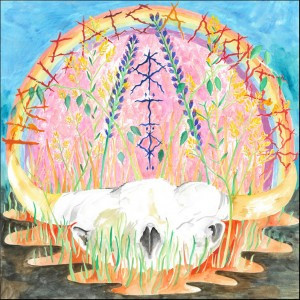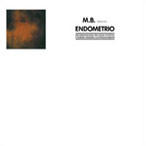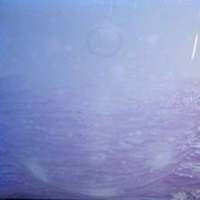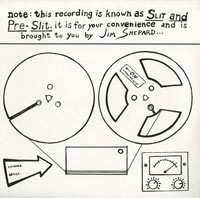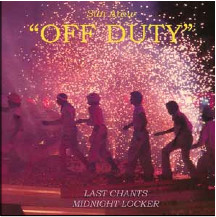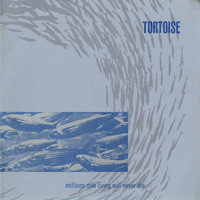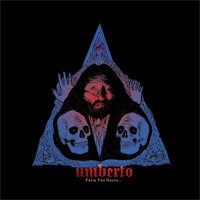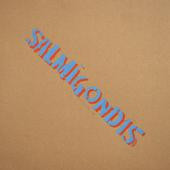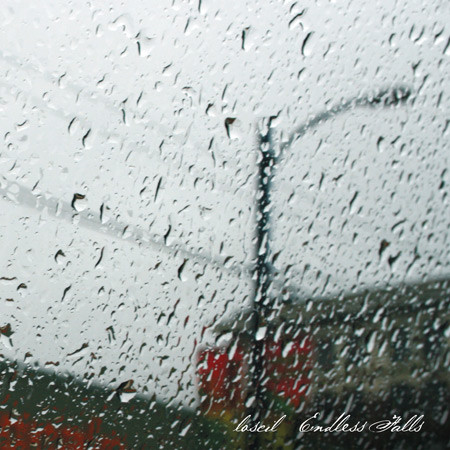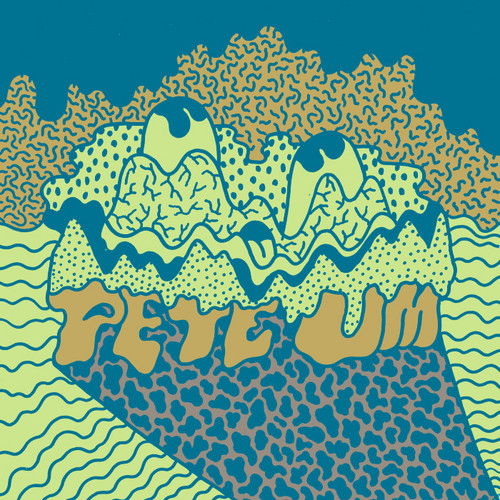New Arrivals
Regine Flory
Limited to 200. Zak Boerger's combination of fuzz, acoustic guitar & extended downer ballads most immediately aligns him with the New Zealand scene centered around Peter Jefferies & Alastair Galbraith as well as associated international satellites like Flying Saucer Attack & the Twisted Village roster, but there's a lonesome edge to the music that would situate it ouside of any particular historical tradition & closer to the mystery school of regional private press obscurities. The acoustic trac…
Live In Tokyo, August, 19th 1974, Part One
This double album (divided into two LPs), recorded live at the Nippon Columbia Studio in Tokyo in 1974, was the group's final effort before disbanding. Here Kosugi and the Travellers blend Eastern and Western instrumentation, vocal chants and electronics to create free-form psych-laden drones. This historic album is an essential and influential piece of Japanese avant rock." Part One LP, clear vinyl in clear plastic sleeve with black lettering. Limited edition …
Vessel
Vessel: a sonic narrative. Through physical confinement and isolation a threshold is penetrated and a vast new world is suddenly accessible. Pressed in a limited edition of 200 copies housed in a deluxe tip-on jacket.
Moondog
Debut album, originally released in 1956. The blind Kansas native showcases his talent for the minimal & avant-garde here, w/ compositions driven by percussion & Japanese-inspired melodies, complimented by street sounds, recitations, & animal noises. Bizarre even for today's standards, it's a wonder this was released over a half-century ago.
Russian mind
Amazing! Transcribed by the Material Eye Institute, Russian Academy of Sciences, Universitetskaya nab. 1, St. Petersburg, 199034, Russia. 6 baseless marble pillars not yet completed, covered in white strata against the backdrop of a simple three-dimensional plane with soft edges. 1. Synesthesia outside venue. 2. If you lived here, you'd be home right now. 3. Lopatin designs preset Prismata ascribed to Trujillo, 2003 and goes downstairs for air. 4. He comes from a long line of shovelers. 5. Life …
R.I.P.
"It’s been a long journey for Northern-Spy artist Collin Langenus and Tom Hohmann, like floating stoned on the back of the turtle that carries the world. Or primal scream therapy. That trip culminates with R.I.P., the group’s final release, and the first of Brooklyn’s newest indie label. A swan song of a group at the top of its form, flowing with ease through psychedelia, stoner rock, prog, Native American mythos, and even political disintegration. R.I.P. was mixed by sludge-riff wunderkind, Max…
Endometrio
First ever vinyl reissue of the highly coveted classic LP by Italian noise composer Maurizio Bianchi. Originally released in an extremely limited quanity in 1983, Endometrio showcased M.B. at his most crucial turning point, delving into the uncharted waters he aptly titled ‘bionic music’, blending organic electronics with contorted sounds of the human body to compose one of the most interesting ambient records to date.copies of the original lp are practically non-existent and hard to co…
Lux Aeterna
greay-area LP reissue, Lux Aeterna, was originally composed to celebrate a friend of William Sheller's wedding, thematically driven by concepts of union and togetherness, and ostensibly based on the Catholic mass, this is far from any sort of religious music you've ever heard. Following in the footsteps of other iconoclastic composers, like Serge Gainsbourg, Jean-Claude Vannier, Lee Hazlewood, David Axelrod, Scott Walker and of course Magma (more on that in a second), Sheller conjured up w…
…On Sea-Faring Isolation
"A casual interweb cruiser could be forgiven for confusing Dolphins Into The Future the “band” (aka the one-man tape-loop blue-age ambient project executed by Belgian Cetacean Nation ambassador Lieven Martens) with Dolphins Into The Future the book (written by dimensional traveler Joan Ocean concerning her 20-year-long real life spirit quest to commune with a school of 200 wild Hawaiian Spinner dolphins). And, to be fair, they’re a LOT alike. Both deal heavily in trippy, drifting logics, vibrati…
Piano Recital (Teatro La Fenice In Venice)
Sun Ra was an extremely prolific artist and while hundreds of recordings exist of Sun Ra, there are only a handful where he can be heard playing solo. This amazing and rare solo performance recorded live in 1977 at the world-famous La Fenice opera house in Venice, and featuring Sun Ra playing a mix of standards as well as his own material on piano, is a rewarding journey into the repertoire of one of the most controversial and unorthodox musicians in the history of jazz.
Slit And Pre-Slit
Reissue limited to 200 copies, originally released as private press in a limited edition of 100 copies in 1977, this ia a Major historical reissue: Slit And Pre-Slit was Jim Shepard’s first ever release, privately pressed in an edition of only 100 copies in 1977 and mostly given away to friends and musical/cultural heroes like Lester Bangs, Todd Rundgren, Lou Reed, David Bowie, Brian Eno, John Cale etc. Its extreme rarity has meant that few have had the chance to wrap their ears around it, …
Off Duty
As if the music of lysergic, lo-fi drugdub one man band Sun Araw wasn't flipped out and damaged enough, on this latest joint, those already tweaked and twisted sounds get even more far out, the vibe WAY druggier and spacier, a 26 minute blast of crumbling wah-guitar laced psychdub comedown in the form of three skull caving soul freeing innerspace excursions."Last Chants" begins with a dense swirling cloud of white noise and damaged effects, shot through with barely there melodies, and loose detu…
Millions Now Living Will Never Die
LP version. 2012 repress. "1996 : Tortoise's landmark second album Millions Now Living Will Never Die is released. Featuring the famous 20 minute opener 'Djed' and out of print on vinyl for far too long we are happy to finally offer it again. Pressed on high quality virgin vinyl and including all original artwork - a fully artworked inner sleeve and for the first time a download coupon!"
From The Grave ...
Expo '70 bass/synth player Matt Hill has gone solo. His debut LP under the Umberto moniker is an analog masterpiece heavily influenced by the classic film score work of Goblin, except arguably better. From the moment you drop the needle, you'll be transported to Italy as an extra in a vintage horror flick directed by Dario Argento. This is some of the most accessible, yet totally authentic sounding music of the "giallo" genre we've ever heard. It was previously only available as a hyper l…
Thought Broadcast
You can not stop thinking. About 18, I finally calmed down, I thought I could stop thinking completely. I become a zombie for four years. Then, in a broken heart, I started again. I came out of the "grip" that held me tight. I started hearing voices. I also tried to kill time. First, you must confess that its people like you and I believe that is broadcasting the idea. It is terrible. When I look around, I am someone who is the same idea with me. My idea is to broadcast. You can read our …
Trop de pas assez
Salmigondis is a collective (born in 2006) of musicians and graphist designers. Free rock, psychedelic, noise Ludovic Renaud (keyboard, turntables, electronics), Jean-Pierre Barja (bass, keyboard, electronics), Jérome Declercq (saxophones, keyboard, basse), Mathieu Renaud (guitar, electronics), Jean-Noël Cognard (drums,objects, voice). Recorded in 2007. Limited to 150 copies.
Endless Falls
Endless Falls is the fifth full length release by Scott Morgan under the loscil moniker. The album begins and ends with the sound of rain recorded by Scott in his back yard, precipitation being a constant presence in his home city of Vancouver. Many of the other sounds on the album are derived from these same recordings, processed and combined with other harmonic sounds to create the textures and drones. Something completely new to this release would be vocals, of a sort, a first for any loscil …
No Pressure
Pete um, a breeder of horses and creator of quirky tape loops, had already created a proud number of tracks scattered over a series of cd-rs, a 7" and a split lp, when he happened to run into the talent scouts of gagarin records in a small pub of his hometown cambridge. the fateful encounter set the clock ticking for a release but it would be five years before the essence of um's vast output was distilled into a flock of 18 tracks that now dazzle silvery on this very record. meanwhile, his music…
Nicht
"Well, here it is! The moment you have all been waiting for.... the arrival of the debut album release by Peterlicker. Despite following on in that terrible tradition of Butthole Surfers and Throbbing Gristle of stupid band names, Peterlicker (newly reformed after 20 years of inactivity) have, against all odds, come up with a serious slab of modern electronic rock.NICHT comprises of five well crafted selections recorded over the summer of 2010. Having got their previous noise free fall style out…
Bunny
Simon Scott produced one of the best records of 2009 with Navigare, an album whose shoegaze dronemusic was dotted with radioluminescent dream-pop numbers. It was hardly a surprise to us when we learned that he was the drummer of Slowdive way back when. Since then, Scott has produced a single for Immune and a collaboration with Jasper TX, both equally fantastic. For his second proper record, Scott makes a slight detour; but one that is well suited to everything else that's been released by…
